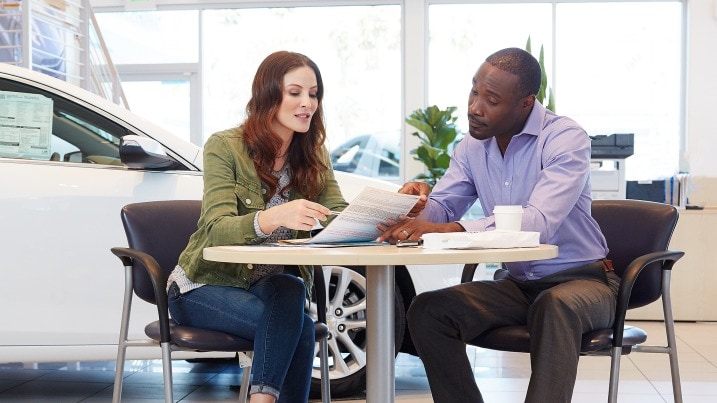Must-Have Paperwork Checklist
Your payment: Payment can be a check from a bank or credit union for a preapproved loan. When the dealership is handling the financing, the down payment, it can be in the form of a cashier's check, a personal check or even a credit card payment. To find out what forms of payment the dealership will accept, call ahead of time and ask to speak with a finance manager. A tip: We strongly recommend that car buyers get preapproved financing even if they intend to finance at the dealership.
Your driver's license: You have to drive the vehicle off the lot, so the dealer needs to know that you are a legally registered driver. The driver's license also serves as identification for your check or other form of payment.
Title for your trade-in vehicle: If you are trading in a vehicle, you will need proof that you own it. The car title, sometimes called the pink slip, shows that you are the owner. Locate that document and see how the car is "titled" — meaning who legally owns it. If there is a co-signer or a lien against the title, get the required signature ahead of time.
Be careful at this stage. Any mistakes in how the title is signed might make it unacceptable to the dealer or lead to it being rejected by the DMV. If you are unclear on what to do, call the dealership's finance manager ahead of time and get some help. You also can check your state's motor vehicle registry website to see where to sign the title.
Current vehicle registration for trade-in: If you are trading in a vehicle, you will need a copy of your current registration. Locate this important document, verify that the registration is current, and also check that the sticker is on the license plate.
Proof of car insurance: To drive a new car off the lot, you need to prove that you have insurance on that car. You can call ahead and set up the new insurance policy if you know which car you are buying. Or you can call from the dealership and give your insurance company the new car's vehicle identification number (VIN). Your insurer will fax or email an insurance card to the dealership. In some cases, however, all the dealer requires is for you to show that you have a current auto insurance policy. To protect yourself, it's best to plan ahead and set up the insurance for the new car.
Account number for your trade-in's loan: If you are trading in a used car for which there is an unpaid loan, you will need to bring the loan's account number, which is on one of your payment stubs. Better yet, call the lender yourself, explain that you are trading in the car, and ask how to facilitate the transaction. If you are car shopping on the weekend, ask if a representative is available to handle the transfer.
Rebate eligibility documents: If you want to take advantage of a special manufacturer rebate, such as a military or recent college graduate rebate, be sure to bring along supporting documents.

